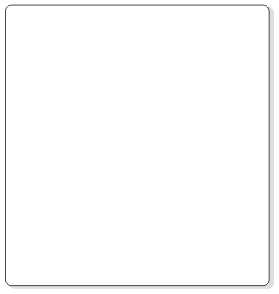Sensory ataxia is both a symptom and a sign in neurology. It is a form of ataxia (loss of coordination) caused not by cerebellar dysfunction but by loss of sensory input into the control of movement.
Sensory ataxia is distinguished from cerebellar ataxia by the presence of near-normal coordination when the movement in question is visually observed by the patient, but marked worsening of coordination when the eyes are closed.
Sensory ataxia also lacks the associated features of cerebellar ataxia such as pendular tendon reflexes, scanning dysarthria, nystagmus and broken pursuit eye movements.
Patients with sensory ataxia often demonstrate pseudoathetosis and Romberg's sign. They usually complain of loss of balance in the dark, typically when closing their eyes in the shower or removing clothing over the head.
The term sensory ataxia is employed to indicate ataxia due to loss of proprioception - the loss of sensitivity to the positions of joint and body parts. This is generally caused by dysfunction of the dorsal columns of the spinal cord, because they carry proprioceptive information up to the brain. In some cases, the cause of sensory ataxia may instead be dysfunction of the various parts of the brain which receive positional information, including the cerebellum, thalamus, and parietal lobes.
Sensory ataxia presents itself with an unsteady "stomping" gait with heavy heel strikes, as well as a postural instability that is usually worsened when the lack of proprioceptive input cannot be compensated for by visual input, such as in poorly lit environments.
Physicians can find evidence of sensory ataxia during physical examination by having the patient stand with his/her feet together and eyes shut. In affected patients, this will cause the instability to worsen markedly, producing wide oscillations and possibly a fall. This is called a positive Romberg's test. Worsening of the finger-pointing test with the eyes closed is another feature of sensory ataxia. Also, when the patient is standing with arms and hands extended toward the physician, if the eyes are closed, the patient's finger will tend to "fall down" and then be restored to the horizontal extended position by sudden muscular contractions (the "ataxic hand").
Causes
Sensory ataxia is present in sensory peripheral neuropathies and conditions causing dysfunction of the dorsal columns of the spinal cord such as tabes dorsalis.
The cause can also be genetic
The functional defect results from an impaired perception of the location of the body part combined with relatively preserved strength in the member. Clinical findings include defective joint position and vibration sense in the leg and sometimes the arms, unstable stance with Romberg's sign, and a gait of slapping or steppage quality. Some examples of diseases that cause sensory ataxia are shown in the table below.
| Polyneuropathy |
Myelopathy |
| Diabetes |
Acute transverse myelitis |
| Hypothyroidism |
Vacuolar myelopathy(AIDS) |
| Cisplatin |
Multiple Sclerosis |
| Isoniazid |
Vascular Malformations |
| Diphtheria |
Tumor or Cord compression |
There is a lot of others diseases that can cause disorders of gait and equilibrium, such as spastic ataxia, frontal lobe disorders, hemiparesis and retropulsion. Nevertheless, their anatomical and physiological basis are very distinct, sometimes poorly understood, and are beyond the scope of this review.
Symptoms of Sensory ataxia
The list of signs and symptoms mentioned in various sources for Sensory ataxia includes the 4 symptoms listed below : -
- Balance problems - especially in the dark or with eyes closed
- Romberg's sign
- Abnormal writhing movements - usually of the fingers
- Loss of proprioception
The Major Sensory Atoxia Surgery Are : -
Sensory Ataxia Surgery, India Low Cost Sensory Ataxia Surgery Delhi, India Sensory Ataxia Surgery , India Cost Sensory Ataxia Surgery , India Sensory Ataxia Surgery Mumbai, India Venous Angioplasty Surgery, India Sensory Ataxia Surgery Hyderabad, India Sensory Ataxia In Children, India Symptom, India Symptoms, India Related Symptoms, India Sensory Ataxia Surgery Kolkata, India Sensory Ataxia Surgery Hospitals, India Sensory Ataxia Surgery Low Cost In, India Sensory Ataxia Surgery, India Signs, India Signs And Symptoms, India Medical Symptoms, India Causes Of Sensory Ataxia In Children, India low cost Sensory Ataxia Surgery, India Sensory Ataxia In Children Causes, India Sensory Ataxia Surgery Procedure Overseas India



